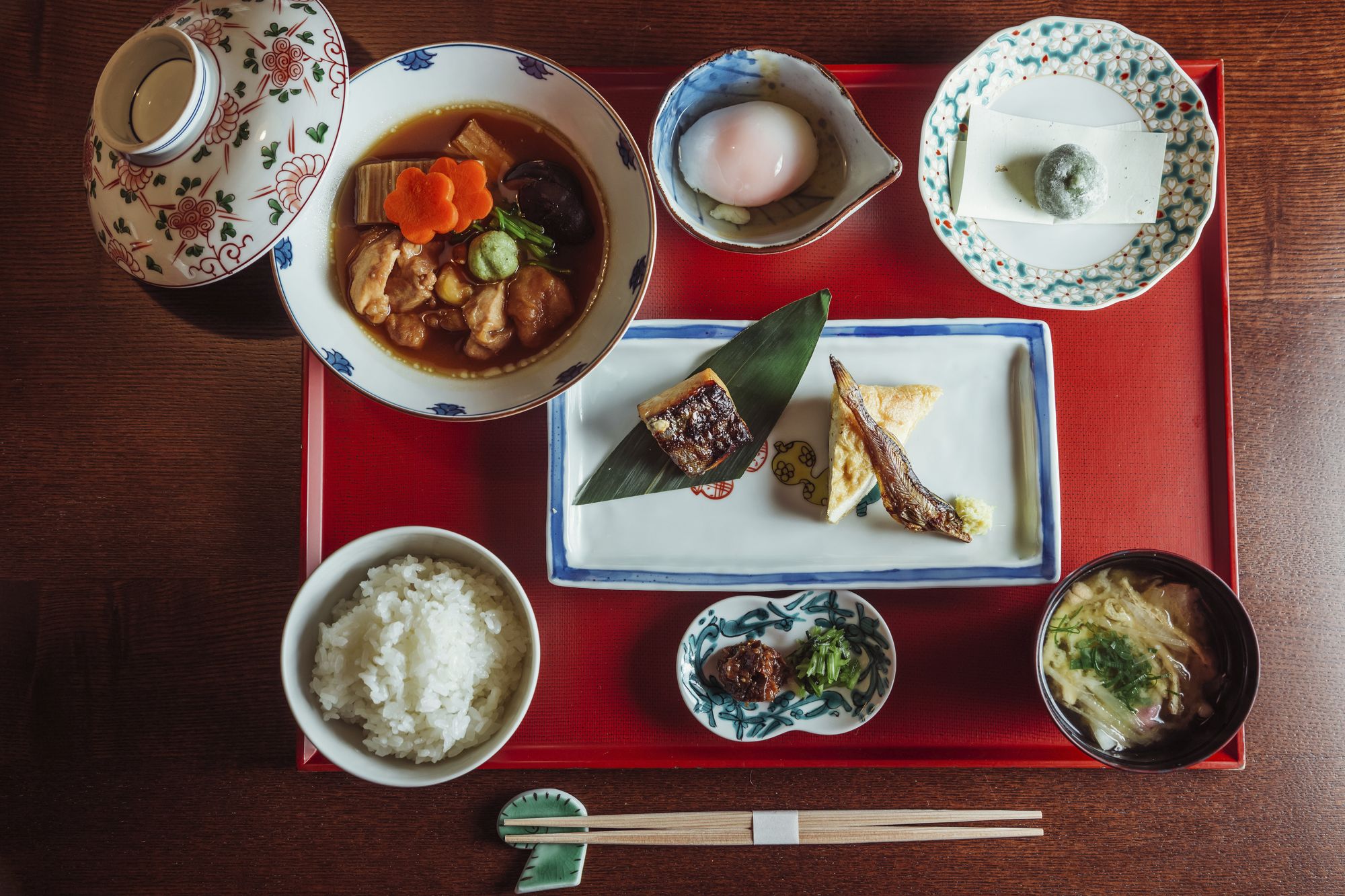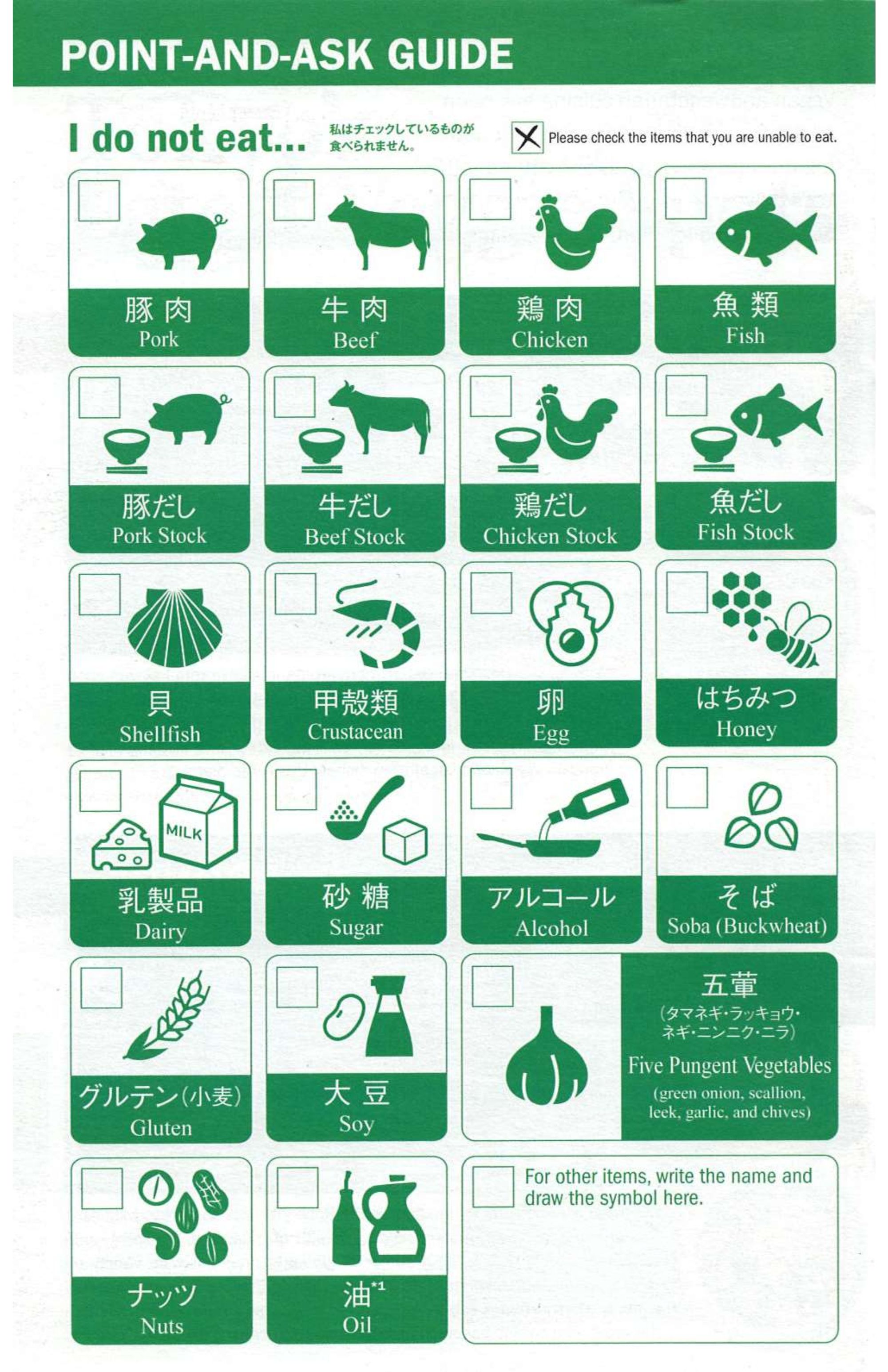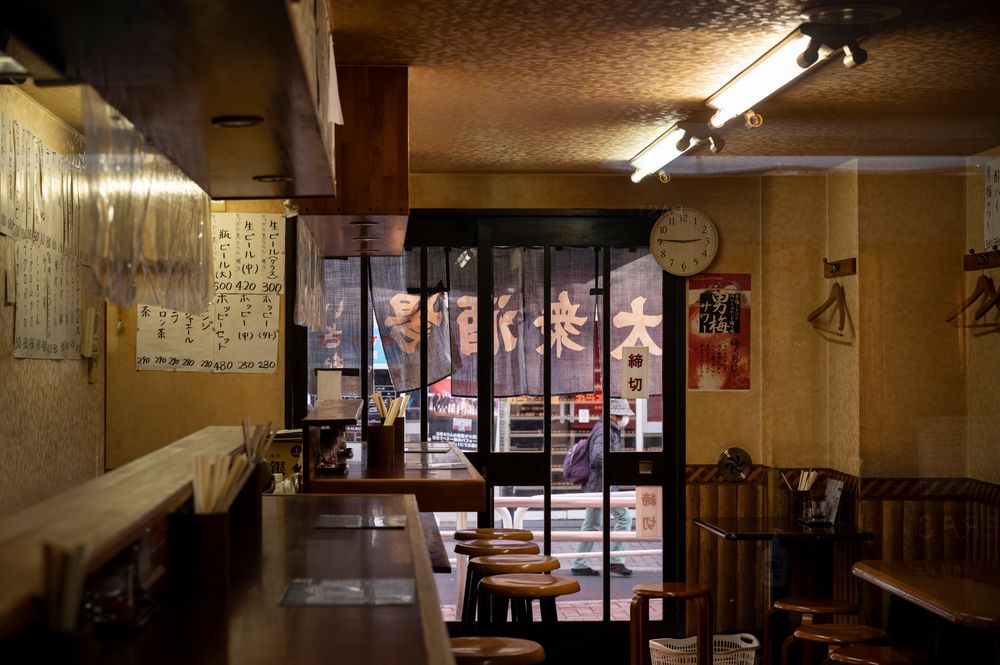Unlocking Japanese Cuisine: How to Dine Halal, Vegetarian and Vegan in Japan

Can You Dine at Any Japanese Restaurant?
At first glance, Japanese cuisine might seem accommodating, especially with its emphasis on rice, seafood, and plant-based ingredients like tofu. These are staples in the traditional diet and can easily align with dietary restrictions. However, when it comes to certain needs, especially for those following halal, vegetarian and vegan diets, there are important factors to consider.
Alcohol, Pork, and other hidden Ingredients in Japanese Cuisine
Many traditional Japanese seasonings and sauces incorporate alcohol, which may be a concern for some. Two common culprits are cooking sake and mirin (a sweet rice wine), which are often used in dishes like teriyaki, tempura, and soups. Soy sauce, a key element in Japanese cooking, can also contain alcohol, though alcohol-free versions are available in some places. Even miso, a seemingly simple soybean paste, can sometimes include alcohol unless it’s labeled as "mu-ten-ka" (無添加), meaning additive-free.
Beyond the main dishes, gelatin and animal fats like butter can sneak into Japanese breads, sweets, and snacks, so it's worth paying attention to those ingredients if you have dietary restrictions. Even when you find a restaurant that serves dishes without pork or alcohol, they may not have separate kitchens for halal-only preparation. This means cross-contamination can be a concern, especially when it comes to shared cooking utensils and surfaces.
For vegetarian and vegan diners, the situation can be similar. While many vegetable-based dishes exist in Japanese cuisine, ingredients like fish stock (dashi) are often used as a base for soups and sauces, even in dishes that otherwise seem plant-based. Some restaurants are becoming more aware of these dietary needs, but it’s still worth double-checking with the staff.
Islamic Rulings on Alcohol in Food
In Islamic dietary law, alcohol is generally prohibited (haram). However, the rulings can vary slightly depending on the school of thought (madhhab) one follows. For someone following Islamic dietary laws, it’s safest to seek halal-certified or alcohol-free alternatives to avoid prohibited substances in sauces and seasonings.
Halal and Vegetarian Options in Japanese Restaurants
If you're specifically seeking halal food, Japan does have a growing number of halal-friendly or even halal-certified restaurants, particularly in larger cities like Tokyo and Osaka.
Navigating Japanese Restaurants:
To ensure your dietary needs are met when dining out in Japan, here are a few tips:
- Look for Halal or Vegetarian-Certified Restaurants: Websites and apps like HappyCow or Halal Navi are great resources to find restaurants that cater to specific dietary requirements. These apps not only give you peace of mind but also feature options that are incredibly tasty and popular among the locals.
- Follow Halal Food Bloggers and Halal Travel Guides: Several influencers focus on helping you find halal and Muslim-friendly places, from restaurants to prayer spaces. One of the most popular is Navito Halal with over one million followers on Instagram and TikTok, who highlights halal-friendly spots, especially in Japan. Another well known Instagram and TikTok site is Halal Food in Japan. These influencers provide useful recommendations for food, travel, and local amenities, making it easier to navigate new places while staying halal.
- Halal Japan app: The is a handy tool for Muslim travelers and residents in Japan, allowing users to scan food products at supermarkets and convenience stores to check if they’re halal. With a quick scan of the barcode, the app provides information on ingredients and preparation, helping users make informed decisions even with language barriers. While the app isn’t yet available in all countries, there’s no need to worry—its features will soon be integrated into the popular Halal Navi app, expanding access and making it easier than ever to find halal options throughout Japan.
- Dietary card: A card is incredibly helpful when dining out in Japan, as it explains dietary restrictions in Japanese for easy communication with restaurant staff. You can save them to your phone or print them for convenience. Here is a dietary card designed by the Tokyo Convention & Visitors Bureau. It provides a handy option tailored to popular dietary requirements. Feel free to take a screenshot or download the file using the following download-link:

- Ask About Ingredients: Don’t hesitate to ask restaurant staff about the use of alcohol or animal-based products in your meal. If there’s a language barrier, it might be helpful to carry a translation card that explains your dietary restrictions in Japanese. Keep in mind that Islam as a religion is not as well known in Japan as it is in countries like Germany. So, the staff may not always understand terms like "halal" and "haram." Here are some example formulations for easy yes-or-no questions:
- 肉やゼラチンを一切使っていない料理はありますか?
Niku ya zerachin o issai tsukatteinai ryōri wa arimasu ka?
(Do you have dishes that are completely made without meat or gelatin?) - もしあれば、その料理を教えていただけますか?
Moshi areba, sono ryōri o oshiete itadakemasu ka?
(If yes, could you show me which dishes?) - これは豚肉で作られていますか?
Kore wa butaniku de tsukurareteimasu ka?
(Is this made with pork?) - これはベジタリアンですか?
Kore wa bejitarian desu ka?
(Is this vegetarian?) - Be Mindful of Sauces and Seasonings: Even seemingly safe dishes like rice bowls or vegetable tempura can be cooked with sauces that contain alcohol or fish-based stocks. Opt for simpler preparations when possible. Sometimes they even use pork powder as seasoning for street food. So, it's helpful to always ask if there is pork: "Kore wa butaniku de tsukurareteimasu ka?". They will also understand if you just say "Butaniku?" with a questioning tone while pointing to the ingredients list or the food.
- Check for Certifications: Some restaurants and also pre-packaged food such as Instant Ramen have certifications displayed, particularly for halal food. These can give you extra peace of mind regarding how the food is prepared.
- Pre-Packaged Foods Can Be Tricky: If you're grabbing a snack or meal from a convenience store, keep in mind that many pre-packaged foods like sandwiches, breads, and desserts may contain gelatin or animal fats. Reading labels or asking for help is a good idea.
It's better to ask one question too many, than one question too little. DeepL and Google-Translate will become your close companion if you don't speak Japanese. Japanese people tend to be very caring and really want to help you. Don’t worry if you don’t speak Japanese fluently or at all. Unlike in some other countries, Japanese people are very understanding when you don’t speak Japanese and appreciate it when you try to speak it anyways or show them a Japanese translation. Since English is not as common, they also often use Google Translate or DeepL themselves.
With a bit of preparation, enjoying Japanese cuisine while sticking to your dietary needs is entirely possible. So go ahead, explore, taste, and experience Japan.
Itadakimasu!!
Halal Navi App
The app for discovering Muslim-friendly places in Tokyo, Kyoto, Osaka, and many more cities! Find halal restaurants, receive exclusive discounts, locate prayer facilities, read travel tips and user reviews, and share your own tips for a seamless travel experience!
Get the free app now!



